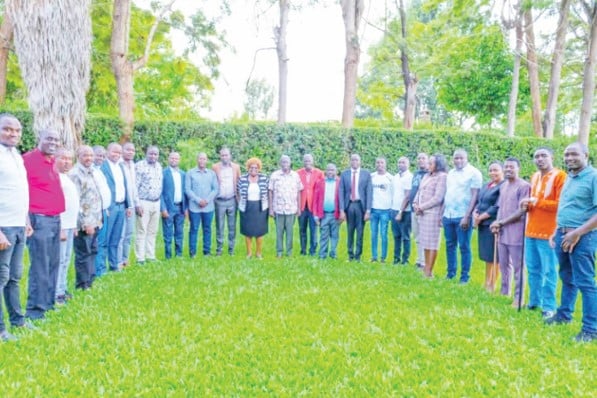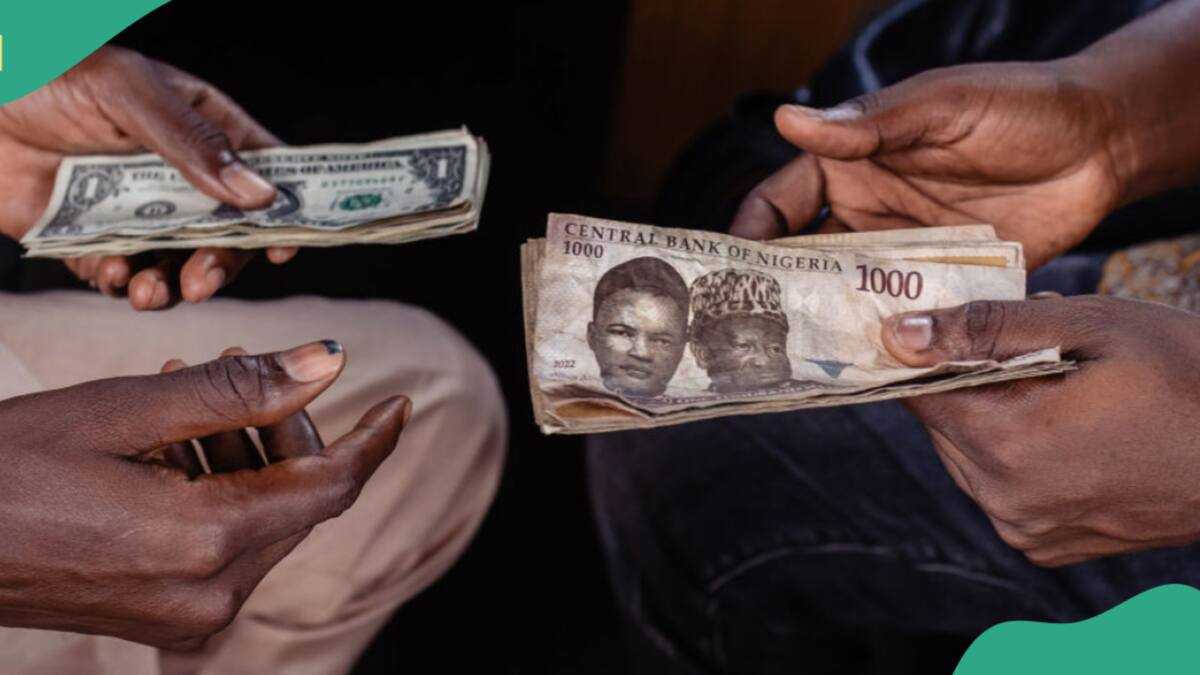The quiet political power of Wamunyoro
Saturday 17th May, 2025 08:00 AM|

I have written extensively on Kenyan politics through a historical lens, drawing connections between past political strategies and present developments. As a political historian, this week I delve into Wamunyoro—the emerging political sanctuary for impeached Deputy President Rigathi Gachagua. Like the royal kraals of precolonial Buganda or the ancestral compounds of Kikuyu elders, Wamunyoro today is not just geography—it is power redefined.
In the misty highlands of Nyeri, cushioned among green ridges and whispering cypress trees, lies Wamunyoro—a homestead that has quietly transformed into the epicenter of Kenya’s evolving political narrative. Once a tranquil ancestral home to Rigathi Gachagua, Wamunyoro now pulses with political life, ambition, and symbolism. It is there that Kenya’s next political realignment is silently taking shape.
In Kenya’s unending political drama, on October 2024, Gachagua became the first Deputy President to be impeached under Kenya’s 2010 Constitution or the first one in Africa.
The Senate upheld five of eleven charges against him, including allegations of ethnic discrimination and undermining the authority of the presidency. What should have ended his political career instead resurrected it.
The self-declared Mau Mau child, rather than retreating, responded with characteristic defiance. Casting his impeachment as a betrayal of the Mt. Kenya region, he framed himself not as a disgraced official, but as a victim of political injustice—an embodiment of the region’s marginalisation. The move resonated powerfully across Central Kenya, tapping into long-standing sentiments of exclusion and unfulfilled promises.
Suddenly, Gachagua was no longer just a former deputy president; he was a symbol of resistance. The homestead in Wamunyoro became more than a personal refuge—it emerged as a site of pilgrimage. Political aspirants, MPs, governors, and grassroots mobilisers began streaming in, seeking blessing, counsel, and strategic alignment. Presence at Wamunyoro became a currency of legitimacy. In a remarkable political charm, Gachagua turned personal adversity into regional strength.
He reclaimed his stature not through institutional power, but by evoking identity, loyalty, and memory—echoing the classic theory of ethnic mobilisation, where leaders draw on shared identity to mobilise support in the face of external threat.
The ruling delivered this month by the High Court that Deputy Chief Justice Philomena Mwilu had no legal authority to empanel judges to hear impeachment petitions. This ruling cast a shadow on the legal basis of Gachagua’s removal from office, reinforcing his claims of procedural injustice.
To his supporters, this is more than a technical judgment—it is a symbolic vindication, a signal that Gachagua’s star is shining once again. It has emboldened his base, strengthened his defiance, and confirmed what many of his allies had begun to believe: that his impeachment was not the end, but the beginning of a new chapter.
Parliament of the people
We must understand that Gachagua’s strategy is far from unprecedented. In Kenya, President Daniel arap Moi (1978-2002) turned his rural Kabarak home into a seat of political coordination after surviving attempted coups and internal party opposition. In Uganda, President Yoweri Museveni (1986-present) transformed his Rwakitura ranch into a nerve center for national consultations.
In Nigeria, Olusegun Obasanjo wielded immense political power from his Ota farm, shaping presidential succession debates even after leaving office. These leaders anchored their comeback strategies in geography, identity, and perceived persecution—just as Gachagua is doing with Wamunyoro.
One can go further back. In 1958, Ghana’s Kwame Nkrumah, freshly released from colonial imprisonment, turned the prison experience into the foundation of his mass mobilisation. In 1990, Nelson Mandela emerged from 27 years of imprisonment and immediately positioned himself as a unifying symbol. In Zimbabwe, Robert Mugabe’s political capital surged upon his release from Rhodesian detention, which he quickly converted into guerrilla leadership and political supremacy. Against this backdrop, Gachagua’s announcement of plans to launch a new political party is both logical and momentous.
Intended as a platform to articulate the region’s grievances and aspirations, the new party—the Democratic Congress Party (DCP)—was officially launched on Thursday this week. With a national chairman from Kajiado and a promise to contest all elective seats in the 2027 elections, the DCP signals a direct challenge to the ruling UDA party and to President William Ruto himself.
This strategic maneuver mirrors historical precedents in Kenya, particularly the formation of ODM by Raila Odinga following his departure from the Kibaki administration in 2005. Gachagua himself has expressed admiration for Raila’s ability to turn betrayal into institutional resilience. Wamunyoro may become to Gachagua what Capitol Hill was to Raila—a nerve center of political mobilisation and negotiation.
Gachagua’s ambition may not limited to Mt. Kenya region. In recent months, he has reached out to leaders from Kajiado, Narok, Samburu, Kisii, and Western Kenya. These overtures represent a calculated attempt to build a national coalition grounded in regional empowerment. In a country where electoral victories are built on ethno regional coalitions, Gachagua understands that his movement must resonate beyond the ridges of Nyeri.
Let us not underestimate the significance of leaders from across the political divide visiting Wamunyoro. These are not mere courtesy calls; they reflect an emerging consensus that Wamunyoro matters—that Gachagua remains a crucial variable in Kenya’s 2027 equation. Opposition leaders have historically made similar moves. Jacob Zuma, after being pushed to the margins of ANC politics, used Nkandla as a site of political renaissance. John Magufuli transformed his home in Chato, Tanzania, into a national symbol of anti-elitist governance.
Wamunyoro functions as both sanctuary and signal. It is a crucible of insurgent politics—a space where new alliances are forged and old hierarchies challenged. Its power is not derived from incumbency, but from symbolism. It tells the story of a leader who, rather than fold under pressure, returned to his roots and turned his home into a parliament of the people.
As Kenya inches closer to the 2027 elections, Wamunyoro shapes the arithmetic of political survival. Aspirants from Kirinyaga, Embu, Meru, Murang’a, and Nyeri are realising that party loyalty alone may no longer be enough. What matters now is proximity to Wamunyoro and alignment with Gachagua’s agenda. Within the ruling UDA party, this presents a dilemma. Gachagua’s growing independence threatens internal cohesion and signals a broader strain—a potential schism between State House and the Mountain’s grassroots base.
Whether Gachagua ultimately seeks the presidency or not, his influence is now indisputable. He may emerge as kingmaker, coalition builder, or disruptor—but his role will be decisive. His language is populist, his metaphors rural, his tone authentic. He speaks not as a technocrat, but as a man forged in the crucible of betrayal.
That story that tone, and that symbolism resonate. Indeed, Gachagua is returning Kenyan politics to its traditional roots, where legitimacy is not merely legal but communal. In African political cosmology, the homestead is sacred. It is memory, identity, and power all in one-Wamunyoro is now all of these. Kenya’s political map is being redrawn—not through parliamentary motions or party headquarters, but through a homestead in Nyeri. Wamunyoro has become more than a name—it is a metaphor for political reinvention.
As 2027 approaches, I am convinced of this: the road to power may still pass through Nairobi—but it must now stop in Wamunyoro. One cannot rule out Gachagua backing Raila—the enigma of Kenyan politics—in a move that could make history by having a one term President.
Such a coalition, forged in shared political estrangement, would be seismic. The ruling regime must tread carefully. Raila’s political nature is unpredictable—like a domesticated guinea fowl that may abandon the homestead for its kin in the bush. For now, Raila may appear domesticated under the Kenya Kwanza arrangement, but his lieutenants have shown signs of returning to the wild.
Should Raila rejoin the opposition or forge a pact with other opposition leaders including Gachagua, the political turbulence that follows will test every assumption the regime currently holds. It is a possibility they must reflect on—and pray never comes to pass.
You Might Also Like
For these and more credible stories, join our revamped Telegram and WhatsApp channels.










